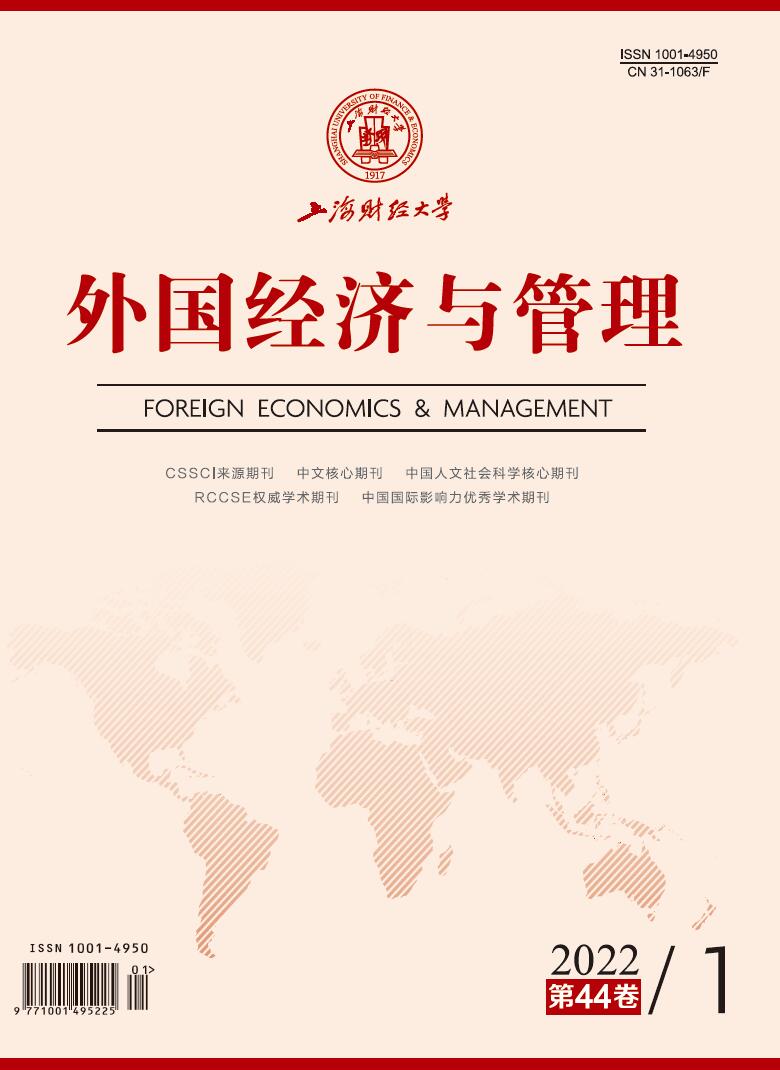数字时代管理实践中的无限链接、动态协同、范围经济、不确定性等特征向现有管理理论提出了巨大挑战,实践界需要新的“范式革命”来帮助组织有效地应对数字化。为了解读数字时代组织面临的新困惑,帮助企业应对数字时代的新挑战,本文提出了协同共生论。协同共生是指组织共生单元通过主动寻求协同增效,实现边界内组织成长、跨边界组织成长和系统自进化,进而达到整体价值最优的动态过程。协同共生的本质是从无序到有序,协同共生论就是用于引导共生单元实现整体价值最优的理论和方法体系,即通过协同共生效应、架构、管理模型及价值重构关键要素的管理理论和方法,帮助企业实现边界内组织成长、跨边界组织成长、系统自进化,进而达到整体价值最优。本文提出组织内共生、组织外共生及组织内外共生等三种共生态结构,并探讨了实现三种结构的机理、要素、模型与情境条件。“协同共生论”作为协同逻辑、共生状态的有机融合,为探索数字时代的组织和管理理论提供了新的可能。
协同共生论:数字时代的新管理范式
摘要
参考文献
2 陈春花. 价值共生: 数字化时代的组织管理[M]. 北京: 人民邮电出版社, 2021.
3 陈春花, 赵海然. 共生: 未来企业组织进化路径[M]. 北京: 中信出版社, 2018.
4 陈春花, 朱丽. 协同: 数字化时代组织效率的本质[M]. 北京: 机械工业出版社, 2020.
5 陈春花, 朱丽, 钟皓, 等. 中国企业数字化生存管理实践视角的创新研究[J]. 管理科学学报,2019, 22(10): 1-8. DOI:10.3969/j.issn.1007-9807.2019.10.001
6 哈肯 H著, 郭治安译. 信息与自组织[M]. 成都: 四川教育出版社, 1988.
7 罗伯特·S. 卡普兰, 戴维·P. 诺顿著, 博意门咨询公司译. 组织协同: 运用平衡计分卡创造企业合力[M]. 北京: 商务印书馆, 2006.
10 朱其忠. 网络组织共生研究——基于专业化分形视角[M]. 北京: 社会科学文献出版社, 2013.
11 Alvarez S A, Zander U, Barney J B, et al. Developing a theory of the firm for the 21st century[J]. Academy of Management Review,2020, 45(4): 711-716. DOI:10.5465/amr.2020.0372
12 Barney J B. Strategic factor markets: Expectations, luck, and business strategy[J]. Management Science,1986, 32(10): 1231-1241. DOI:10.1287/mnsc.32.10.1231
14 DiMaggio P J. Comments on “What theory is not”[J]. Administrative Science Quarterly,1995, 40(3): 391-397. DOI:10.2307/2393790
15 Freixanet J, Rialp A, Churakova I. How do innovation, internationalization, and organizational learning interact and co-evolve in small firms? a complex systems approach[J]. Journal of Small Business Management,2020, 58(5): 1030-1063. DOI:10.1111/jsbm.12510
17 Hardy C, Phillips N, Lawrence T B. Resources, knowledge and influence: The organizational effects of interorganizational collaboration[J]. Journal of Management Studies,2003, 40(2): 321-347. DOI:10.1111/1467-6486.00342
18 Heath J, Norman W. Stakeholder theory, corporate governance and public management: What can the history of state-run enterprises teach us in the post-Enron era?[J]. Journal of Business Ethics,2004, 53(3): 247-265. DOI:10.1023/B:BUSI.0000039418.75103.ed
19 Hou H, Shi Y J. Ecosystem-as-structure and ecosystem-as-coevolution: A constructive examination[J]. Technovation,2021, 100: 102193. DOI:10.1016/j.technovation.2020.102193
20 Jacobides M G, Knudsen T, Augier M. Benefiting from innovation: Value creation, value appropriation and the role of industry architectures[J]. Research Policy,2006, 35(8): 1200-1221. DOI:10.1016/j.respol.2006.09.005
22 Levitt T. Marketing myopia[J]. Harvard Business Review,2004, 82(7-8): 138-149.
23 Morgan-Thomas A, Dessart L, Veloutsou C. Digital ecosystem and consumer engagement: A socio-technical perspective[J]. Journal of Business Research,2020, 121: 713-723. DOI:10.1016/j.jbusres.2020.03.042
24 Nambisan S. Digital entrepreneurship: Toward a digital technology perspective of entrepreneurship[J]. Entrepreneurship Theory and Practice,2017, 41(6): 1029-1055. DOI:10.1111/etap.12254
25 Penrose E T. The theory of the growth of the firm[M]. Oxford: Oxford University Press, 2009.
26 Raisch S, Krakowski S. Artificial intelligence and management: The automation–augmentation paradox[J]. Academy of Management Review,2021, 46(1): 192-210. DOI:10.5465/amr.2018.0072
28 Teece D J. Profiting from technological innovation: Implications for integration, collaboration, licensing and public policy[J]. Research Policy,1986, 15(6): 285-305. DOI:10.1016/0048-7333(86)90027-2
29 Teece D J. Reflections on “profiting from innovation”[J]. Research Policy,2006, 35(8): 1131-1146. DOI:10.1016/j.respol.2006.09.009
30 Teece D J. Explicating dynamic capabilities: The nature and microfoundations of (sustainable) enterprise performance[J]. Strategic Management Journal,2007, 28(13): 1319-1350. DOI:10.1002/smj.640
31 Venkatesh V, Shaw J D, Sykes T A, et al. Networks, technology, and entrepreneurship: A field quasi-experiment among women in rural India[J]. Academy of Management Journal,2017, 60(5): 1709-1740. DOI:10.5465/amj.2015.0849
32 Wang R D, Miller C D. Complementors’ engagement in an ecosystem: A study of publishers’ e-book offerings on amazon kindle[J]. Strategic Management Journal,2020, 41(1): 3-26. DOI:10.1002/smj.3076
引用本文
陈春花, 朱丽, 刘超, 等. 协同共生论:数字时代的新管理范式[J]. 外国经济与管理, 2022, 44(1): 68-83.
导出参考文献,格式为:
下一篇:经济政策不确定性与“双高现象”





 8290
8290  15686
15686

